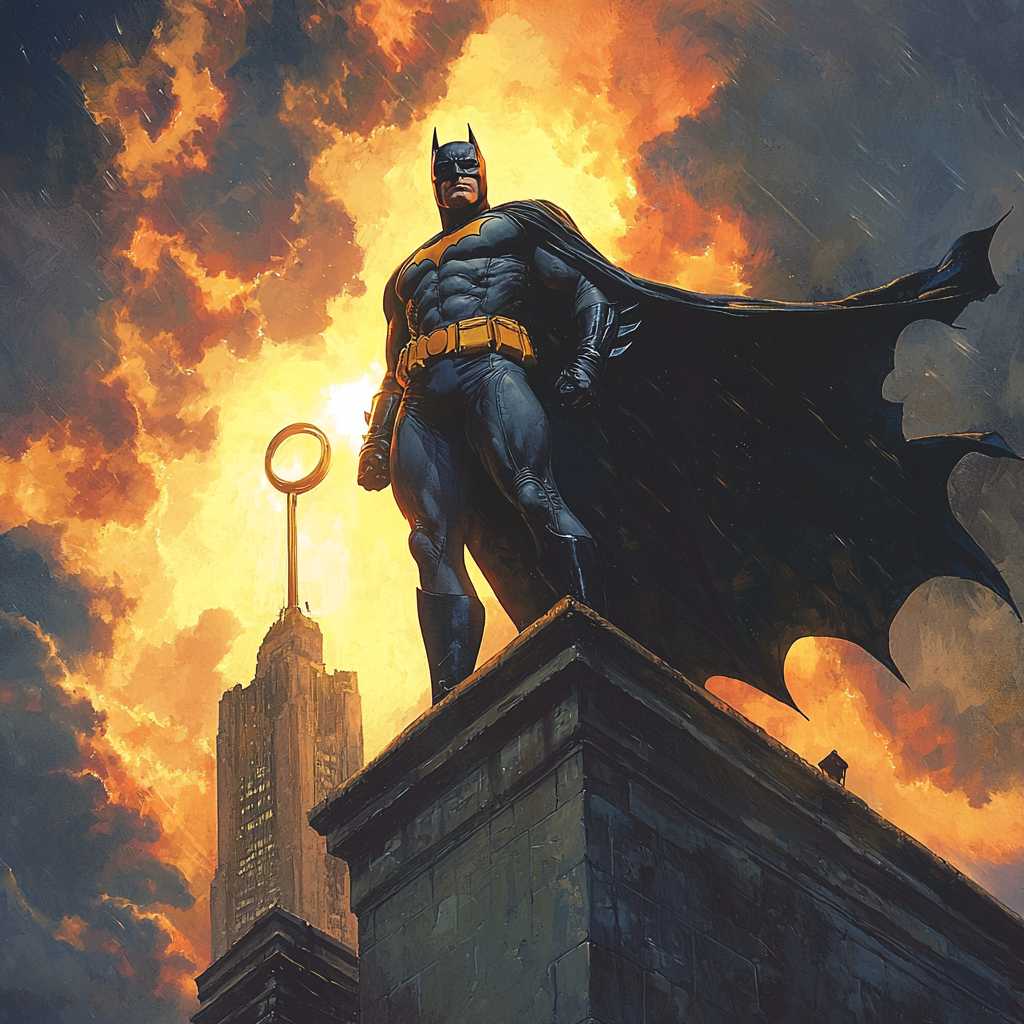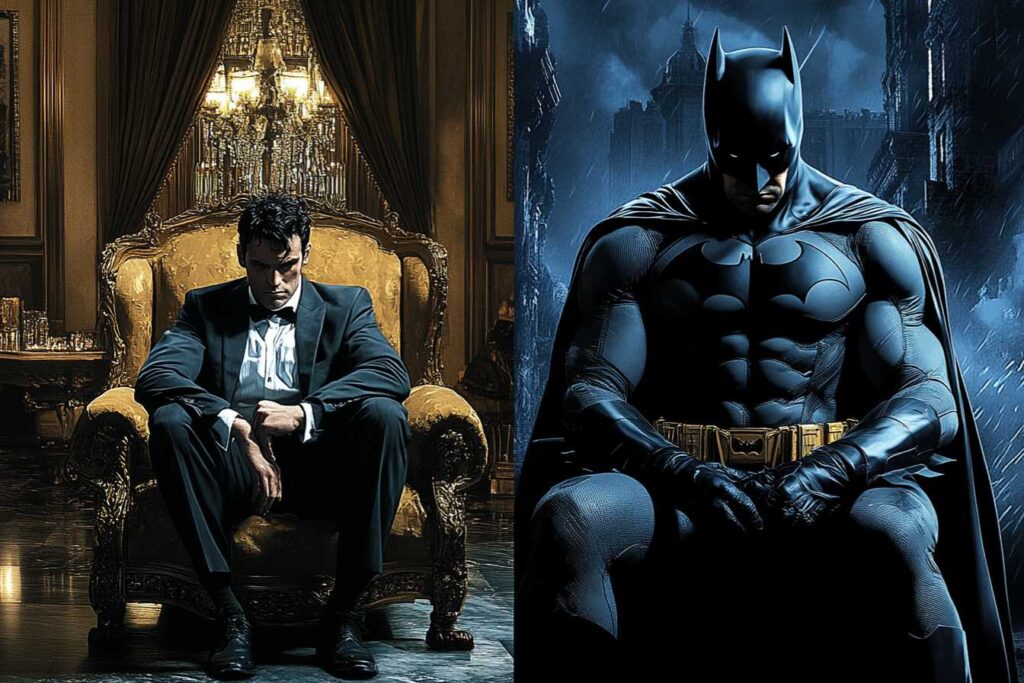Imagine witnessing your parents’ brutal murder as a child, their last moments etched into your psyche forever. Most would crumble under such trauma, succumbing to fear, anger, or despair.
But one man took that pain and transformed it into something extraordinary. Bruce Wayne didn’t just survive his trauma—he became Batman, Gotham’s greatest protector.
Why did Batman’s trauma fuel his relentless crusade against crime?
What makes him different from others who experience similar pain?
In this deep dive, we’ll explore the psychological forces behind Batman’s transformation, his complicated relationship with fear and justice, and how his trauma defines Gotham itself.
The Origin of Trauma: The Murder of Thomas and Martha Wayne
Every superhero has an origin story, but few are as psychologically gripping as Batman’s. At just 8 years old, Bruce Wayne’s world shattered when a mugger named Joe Chill gunned down his parents in a dark Gotham alley.
This moment is the singular event that defines Batman’s existence.
The Psychological Impact of Childhood Trauma
- Post-Traumatic Stress Disorder (PTSD): Studies show that early childhood trauma can lead to PTSD, resulting in hyper-vigilance, nightmares, and difficulty trusting others.
- Survivor’s Guilt: Bruce was helpless to save his parents, leading to a lifelong battle with guilt and a need to atone.
- Fear as a Catalyst: Instead of allowing fear to paralyze him, Bruce embraced fear, weaponizing it into the very symbol of Batman.
Unlike many trauma survivors who become withdrawn or self-destructive, Bruce found a purpose. His grief and pain didn’t consume him—it fueled his MISSION!
Related: 9 DC Movie Scenes That Are Way Harder To View On A Rewatch!
Psychology Behind Batman’s Transformation!

1. Batman as a Coping Mechanism
Psychologists often discuss how individuals process trauma through different coping strategies. Batman is Bruce Wayne’s ultimate coping mechanism.
- Different Personalities: Bruce divides his personality into two personas— [Bruce Wayne, the billionaire playboy], and [Batman, the relentless crimefighter].
- Projection: Instead of seeking personal revenge, he projects his trauma onto Gotham, vowing to protect others from suffering the same fate.
- Control: The death of his parents made Bruce feel powerless. Becoming Batman gave him control over crime and, by extension, over his own trauma.
2. The Dark Knight’s Moral Code: A Psychological Dilemma
One of Batman’s most fascinating traits is his No-kill Rule. Unlike many heroes (or villains), he refuses to take a life, no matter how evil the enemy.
- Justice vs. Vengeance: While Batman seeks justice, he constantly battles the temptation of vengeance, especially against foes like the Joker.
- A Need for Structure: His strict moral code gives him structure and prevents him from descending into madness.
- A Reflection of His Trauma: He won’t kill because he understands loss too intimately—he never wants to become the man who created him.
The Joker: Batman’s Dark Reflection

No analysis of Batman’s psychology is complete without addressing his greatest enemy: The Joker.
If Batman is a product of trauma turned into discipline, the Joker is the opposite—a man who embraced chaos as his coping mechanism.
Batman vs. Joker: Two Responses to Trauma
- Batman channels his pain into structure and purpose.
- Joker lets pain drive him to nihilism and anarchy.
- Both wear masks, but for opposite reasons—Batman to protect, Joker to destroy.
This is why their conflict is eternal. The Joker constantly tempts Batman to break his moral code, proving they’re two sides of the same coin.
Gotham City: A Reflection of Batman’s Mind

Gotham is more than just a city—it’s a living, breathing extension of Bruce Wayne’s trauma.
- Dark and corrupt, yet full of potential—just like Bruce.
- Plagued by crime but never beyond redemption.
- A psychological battleground where Bruce wages war on his inner demons.
Gotham’s crime rate, its endless cycle of violence, and its twisted villains mirror Bruce’s internal struggle with his past.
Related: The Batman’s Big Regret: What’s Next for Bruce Wayne?
Why Batman is the Greatest Superhero of All Time!

Unlike Superman, who was born with powers, or Spider-Man, who gained them accidentally, BATMAN is entirely self-made.
His trauma didn’t give him superhuman abilities—it gave him an unbreakable will.
Lessons We Can Learn From Batman’s Psychology
- Pain can be transformed into purpose.
- Fear can be conquered and even weaponized.
- One’s past does not define their future—it’s how we respond to it that matters.
Batman resonates with fans because his struggles feel real. He’s not an alien, a god, or a mutant—he’s just a man who refuses to give up.
Related: Who is the Greatest Batman Actor of All Time? Ranking Every Live-Action Batman!
Final Thoughts: Is Batman’s Trauma a Blessing or a Curse?

Batman’s psychology is one of the most complex in all of fiction! His trauma made him who he is, but it also isolates him.
Would Bruce Wayne be happier if he had never lost his parents? Probably. But would Gotham have its greatest hero? Absolutely not!
His pain is his greatest burden, yet also his greatest strength. And that’s why we love him.
What Do You Think?
Do you believe Batman’s trauma made him stronger, or do you think it condemned him to a life of suffering?
Let us know in the comments!
